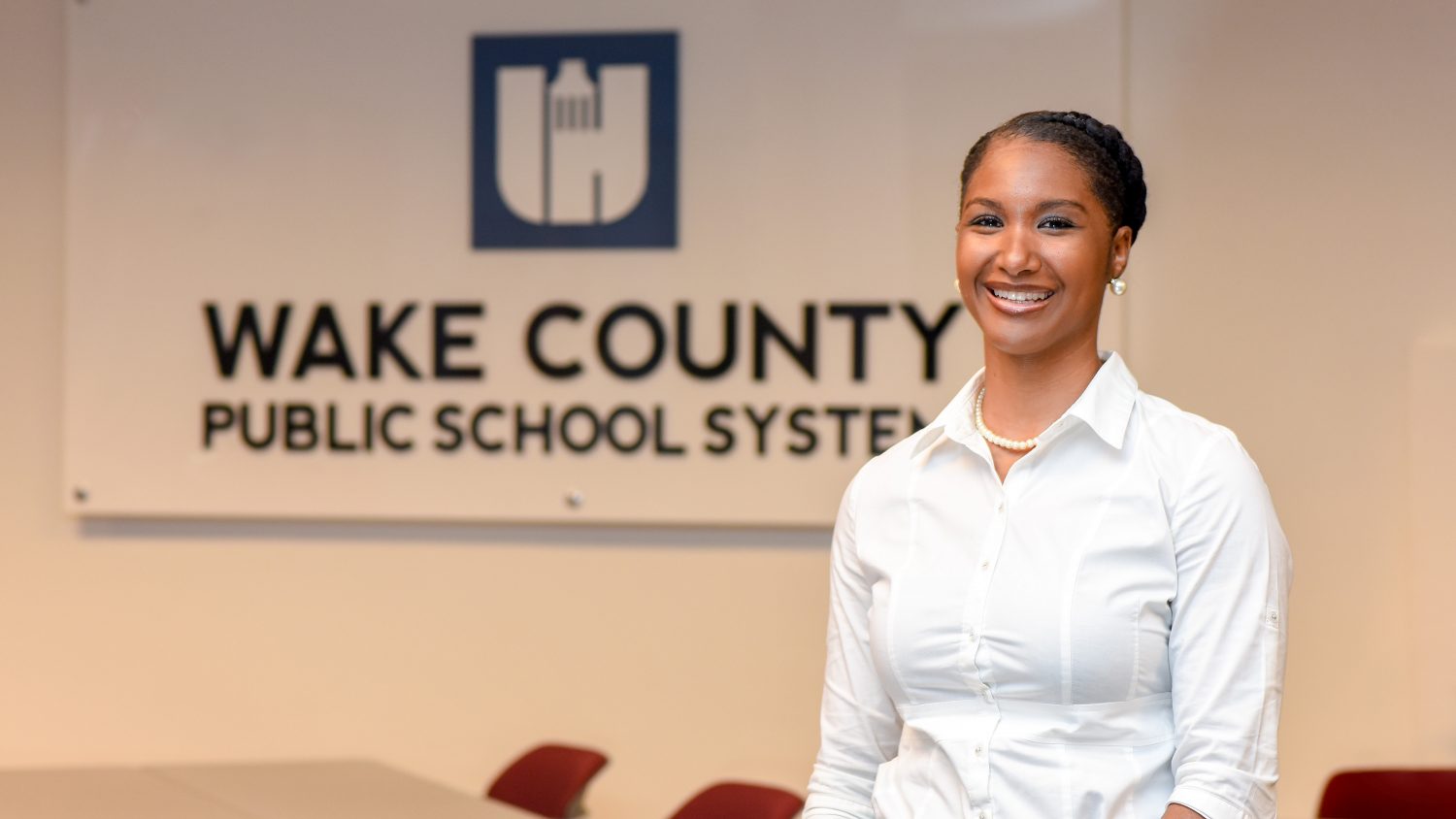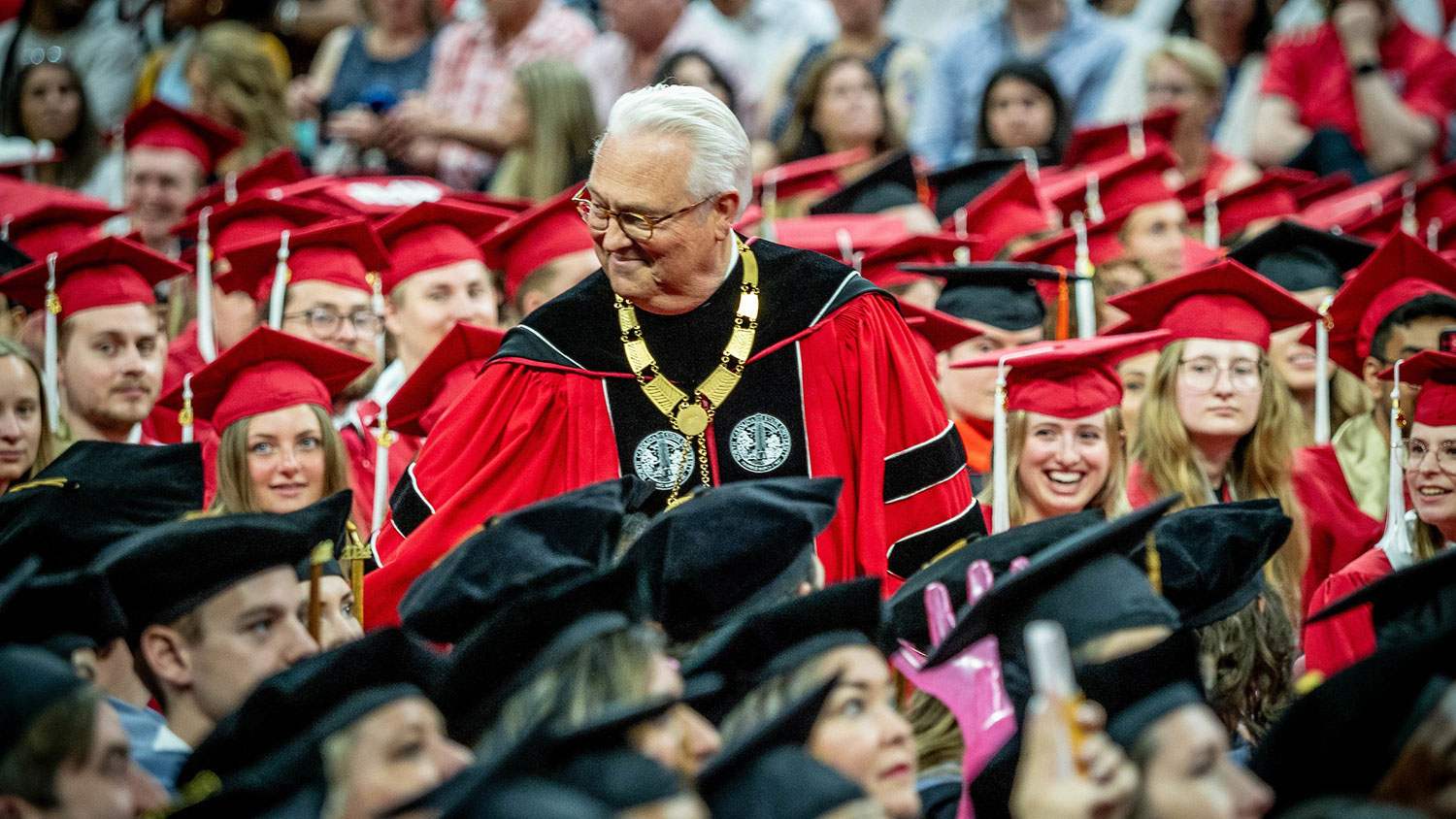An Educator Right Where She Needed to Be

LaTeisha Jeannis always wanted to be a teacher, but it was an athletic competition that helped bring her from her native New York to North Carolina. In high school, she made her first visit to NC State University to participate in the Raleigh Relays. “I fell in love with the campus,” she said. “I knew that was where I wanted to be.”
That feeling hasn’t changed since Jeannis graduated from NC State with her B.S. in business and marketing education in 2007. While teaching that same subject not far away at Garner Magnet High School, she began to notice advertisements for graduate programs. She reached out to a former professor for advice about getting her master’s degree and soon was enrolled in the university’s Master of Education program, focusing on curriculum and instruction.
“Once I was in a graduate program, I felt like I was learning exactly what I needed in order to be more effective in my position,” Jeannis said. “I started to build my professional network because different projects for my courses took me all over my county to meet new people.”
Jeannis earned her MED in 2010 and her Master of School Administration in 2014. She knew she would need certain qualifications to reach her professional goals, and professors such as Gregory Hicks, teaching assistant professor and MSA coordinator, encouraged her to look into the Ph.D. program.
“NC State is really good about letting master’s students know what our opportunities are and what the next steps could be,” she said.
Graduate students are often encouraged to enroll at a different institution from their undergraduate one for their master’s or doctoral degrees, to expose themselves to new ideas and methods of instruction. Jeannis, however, had seen the College of Education grow and diversify during her time in its programs.
“I really felt like I got those different perspectives because we had such a diverse staff,” she said. “I could tell my professors loved what they did. It was a hands-on experience – they were innovative, and it was awesome.”
The commitment of her professors helped Jeannis overcome the doubts that can accompany being a nontraditional student. She explained that she experienced imposter syndrome at first, but the connections she made in her program helped her see that she belonged.
“I call Dr. Hicks my ‘school father’ because he keeps up with you to see if you’re doing OK,” she said. She also found a kindred in spirit in Lisa Bass, an assistant professor focusing on education reform. “I identified with her the most. Her road was different than mine, but I could relate to her in a big way.”
Jeannis’ research for her doctorate in educational administration and supervision focused on high school freshman class retention, family and community involvement, and transitional periods for students, such as moving from elementary to middle school and middle school to high school. Her work was aided in part by the Augustus Witherspoon Graduate Scholarship.
“I am really appreciative of the support I received,” Jeannis said. As a part-time doctoral student, she wasn’t eligible for some of the funding opportunities a full-time student may be. She also continued working as the assistant principal at South Garner High School, which made attending a speaker series or participating in study sessions more difficult.
The Witherspoon Scholarship served as a meaningful reminder that NC State was invested in her success, whether she was a full-time student or not.
“Having that extra support was good for me. Just knowing that they were willing to assist me was important,” she said.
Jeannis created her community through experiential learning opportunities that helped students build relationships during class and through the Jackson Scholarship. Bass nominated her for the Jackson Scholars, a nationwide program for graduate students of color pursuing careers in educational leadership. Through attending conferences and making connections with peers at other universities, she grew her skillset and learned more about the academic profession.
When Jeannis graduates this month, she will continue her work as a senior administrator of employee relations for the Wake County Public School System. She looks forward to continuing to grow in her role and eventually taking on a leadership position.
“Being here helped me realize it’s OK to do things on my terms,” Jeannis said. “It’s worth all the work and missing sleep and the time you miss with your friends. The value my education has added to my life is huge. I was right where I needed to be.”
“All four of my degrees are from NC State, and they’re from NC State for a reason.”
- Categories:


